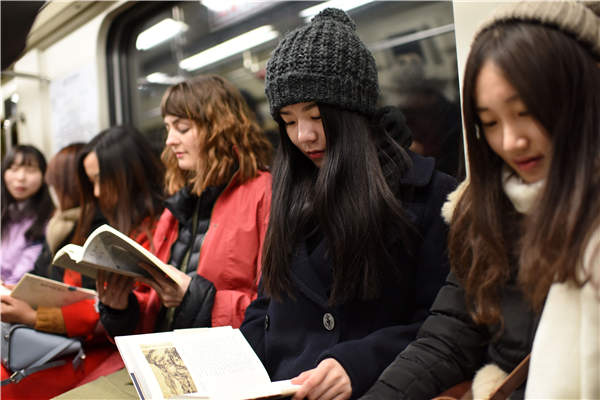Chinese spending more money on buying printed books
By Yang Yang ( China Daily ) Updated: 2016-02-03 08:24:37
 |
|
[Photo by He Guanxin/Provided to China Daily] |
In general, leading online bookstores, including Dangdang and JD, say Chinese bought a lot of self-help books last year.
According to a survey by Beijing Normal University, Chinese still prefer printed books.
Among the nearly 30,000 people who took the survey online, nearly 51.9 percent say they like reading printed books, followed by 26.8 percent who like reading on smartphones, and others who read on computers.
Dangdang, with 20 million digital readers, saw about 100 million copies of books downloaded in 2015. The average time readers spent on its reading app surpassed an hour per day.
But it is still very hard to survey digital books in China because of piracy issues, says Yao Hong, marketing director of OpenBook.
YuHong, managing director of Amazon Kindle, said at the Beijing International Book Fair in August that in the last three years, the download volume of books on Kindle has been growing.
But Kindle users read only 42 percent of the books on the e-reader. The rest are read offline.
As the government is advocating more reading and is building more libraries, the industry of printed books will see at least 10 years of golden development, Xu Jianhua, a professor of Nankai University, says in an interview with Chinaxwcb.com, a site under the State Administration of Press, Publication,Radio, Film and Television.
|
|
|
|
|
|
|
|






















 Raymond Zhou:
Raymond Zhou: Pauline D Loh:
Pauline D Loh: Hot Pot
Hot Pot Eco China
Eco China China Dream
China Dream China Face
China Face






